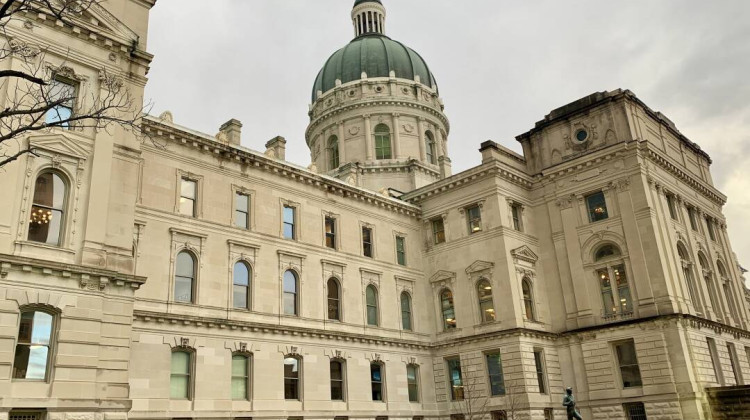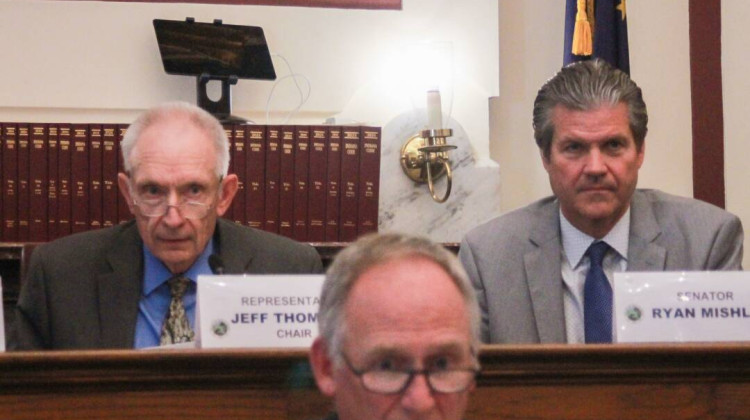
Denise Abdul-Rahman, Indiana NAACP state environmental climate justice chair, speaks at the group's annual legislative day.
Justin Hicks/IPB NewsBlack leaders from across Indiana on Monday weighed in legislation near the finish line that would affect everything from education to the environment during the NAACP’s annual legislative day at the Statehouse.
A controversial school curriculum bill, House Bill 1134, was a major hot topic at the rally. Speakers adamantly opposed it on the same day it was scheduled to receive a crucial vote on the Senate floor. Several – including Drew Duncan from the South Bend chapter of the NAACP – said it would effectively erase Black history from the classroom.
“They’re trying to remove American history from the books,” Duncan said. “We are a part of this country. We helped build it and we need to be proud of that.”
Several lawmakers also detailed their efforts to fight legislation championed by Republicans. Rep. John Bartlett (D-Indianapolis) said between education bills and a measure to remove handgun permits, lawmakers are sending a bleak message to Hoosiers.
“We want to rob you of education but equip you with a gun,” Bartlett said. “Just think about that.”
Leaders also strongly oppose several environmental bills that would disproportionately impact Black, Brown, and low-income communities.
How the state approaches energy and environment topics might matter more than ever.
The Biden administration committed to send 40 percent of all federal funding to communities most affected by climate change — including Black, Brown, and low-income communities. But it’s the state’s responsibility to distribute most of those dollars.
“How are we going to make sure that our constituents, our members, our communities get their fair share?” said Denise Abdul-Rahman, the Indiana NAACP state environmental climate justice chair.
Join the conversation and sign up for the Indiana Two-Way. Text "Indiana" to 73224. Your comments and questions in response to our weekly text help us find the answers you need on statewide issues. Trying to follow along with our coverage of the legislative session? We've compiled all the stories our reporters have published by bill number and topic here.
Gov. Eric Holcomb joined 15 other governors in a letter urging the Biden administration to let the states handle the federal infrastructure funding in their own way and not to prioritize equity and climate change.
Among other things, Abdul-Rahman expressed support for an amendment to House Bill 1221 to put more electric vehicle charging stations in diverse communities and House Bill1196 — a bill to allow Hoosiers with homeowner’s associations access to solar power.
Abdul-Rahman said the NAACP opposes a bill that would allow companies to store their carbon emissions underground and a bill that would encourage small nuclear reactors to be built in the state.
Contact reporter Justin at jhicks@wvpe.org or follow him on Twitter at @Hicks_JustinM. Contact reporter Rebecca at rthiele@iu.edu or follow her on Twitter at @beckythiele.
Indiana Environmental reporting is supported by the Environmental Resilience Institute, an Indiana University Grand Challenge project developing Indiana-specific projections and informed responses to problems of environmental change.
9(MDAyMzk1MzA4MDE2MjY3OTY1MjM5ZDJjYQ000))
 DONATE
DONATE






 Support WFYI. We can't do it without you.
Support WFYI. We can't do it without you.